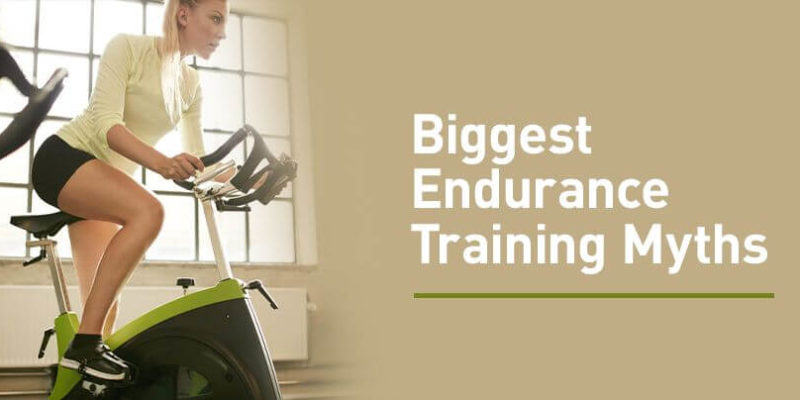
Evidence Based
I’m going to break down 7 nutrition myths that are especially prevalent among endurance athletes.
These myths also exist in the strength training world, but they’re particularly pernicious for people who run, jog, swim, cycle, or do any sort of endurance training.
These people know that nutrition is key to performance. Unfortunately, while some advice out there is good, a lot of nutrition advice is just flat-out nonsense.
So in this episode of the podcast, I’m going to lay some of the worst offenders to rest.
Lastly, if you want to support the show, please drop a quick review of it over on iTunes. It really helps!
Timestamps:
4:01 – Myth: Eating lots of carbs is the most important part of nutrition.
8:39 – Myth: You have to eat within 30 minutes of finishing an endurance workout.
10:38 – Should you eat before or during an endurance training workout?
12:08 – Myth: Energy bars and gels are better than whole foods.
13:43 – The best carbs for before, during, or after a workout.
14:39 – Myth: Endurance trainees should take electrolyte supplements.
18:27 – Why you should be skeptical of electrolyte and hydration supplements.
24:33 – Myth: Getting leaner makes you faster.
27:37 – Myth: endurance athletes should never diet.
31:07 – Myth: You should train to “earn” your calories.
Mentioned on the Show:
Legion VIP One-on-One Coaching
What did you think of this episode? Have anything else to share? Let me know in the comments below!
+ Scientific References
- Ross, R., & Janssen, I. (2001). Physical activity, total and regional obesity: Dose-response considerations. Medicine and Science in Sports and Exercise, 33(6 SUPPL.). https://doi.org/10.1097/00005768-200106001-00023
- Logue, D. M., Madigan, S. M., Melin, A., Delahunt, E., Heinen, M., Mc Donnell, S. J., & Corish, C. A. (2020). Low energy availability in athletes 2020: An updated narrative review of prevalence, risk, within-day energy balance, knowledge, and impact on sports performance. In Nutrients (Vol. 12, Issue 3). MDPI AG. https://doi.org/10.3390/nu12030835
- Loucks, A. B. (2007). Low energy availability in the marathon and other endurance sports. Sports Medicine, 37(4–5), 348–352. https://doi.org/10.2165/00007256-200737040-00019
- Sundgot-Borgen, J. P., & Torstveit, M. K. M. (n.d.). Prevalence of Eating Disorders in Elite Athletes Is Higher T… : Clinical Journal of Sport Medicine. Retrieved March 17, 2021, from https://journals.lww.com/cjsportsmed/Abstract/2004/01000/Prevalence_of_Eating_Disorders_in_Elite_Athletes.5.aspx
- Huovinen, H. T., Hulmi, J. J., Isolehto, J., Kyröläinen, H., Puurtinen, R., Karila, T., Mackala, K., & Mero, A. A. (2015). Body composition and power performance improved after weight reduction in male athletes without hampering hormonal balance. Journal of Strength and Conditioning Research, 29(1), 29–36. https://doi.org/10.1519/JSC.0000000000000619
- Schwellnus, M. P., Drew, N., & Collins, M. (2011). Increased running speed and previous cramps rather than dehydration or serum sodium changes predict exercise-associated muscle cramping: A prospective cohort study in 210 Ironman triathletes. British Journal of Sports Medicine, 45(8), 650–656. https://doi.org/10.1136/bjsm.2010.078535
- Schwellnus, M. P., Nicol, J., Laubscher, R., & Noakes, T. D. (2004). Serum electrolyte concentrations and hydration status are not associated with exercise associated muscle cramping (EAMC) in distance runners. British Journal of Sports Medicine, 38(4), 488–492. https://doi.org/10.1136/bjsm.2003.007021
- Schwellnus, M. P. (2009). Cause of Exercise Associated Muscle Cramps (EAMC) – Altered neuromuscular control, dehydration or electrolyte depletion? In British Journal of Sports Medicine (Vol. 43, Issue 6, pp. 401–408). Br J Sports Med. https://doi.org/10.1136/bjsm.2008.050401
- Baker, L. B., Munce, T. A., & Kenney, W. L. (2005). Sex differences in voluntary fluid intake by older adults during exercise. Medicine and Science in Sports and Exercise, 37(5), 789–796. https://doi.org/10.1249/01.MSS.0000162622.78487.9C
- Anastasiou, C. A., Kavouras, S. A., Arnaoutis, G., Gioxari, A., Kollia, M., Botoula, E., & Sidossis, L. S. (2009). Sodium replacement and plasma sodium drop during exercise in the heat when fluid intake matches fluid loss. Journal of Athletic Training, 44(2), 117–123. https://doi.org/10.4085/1062-6050-44.2.117
- Hew-Butler, T., Loi, V., Pani, A., & Rosner, M. H. (2017). Exercise-Associated hyponatremia: 2017 update. In Frontiers in Medicine (Vol. 4, Issue MAR, p. 1). Frontiers Media S.A. https://doi.org/10.3389/fmed.2017.00021
- Cheung, S. S., McGarr, G. W., Mallette, M. M., Wallace, P. J., Watson, C. L., Kim, I. M., & Greenway, M. J. (2015). Separate and combined effects of dehydration and thirst sensation on exercise performance in the heat. Scandinavian Journal of Medicine & Science in Sports, 25(S1), 104–111. https://doi.org/10.1111/sms.12343
- Ranchordas, M. K., Tiller, N. B., Ramchandani, G., Jutley, R., Blow, A., Tye, J., & Drury, B. (2017). Normative data on regional sweat-sodium concentrations of professional male team-sport athletes. Journal of the International Society of Sports Nutrition, 14(1), 40. https://doi.org/10.1186/s12970-017-0197-4
- Nieman, D. C., Gillitt, N. D., Sha, W., Meaney, M. P., John, C., Pappan, K. L., & Kinchen, J. M. (2015). Metabolomics-Based Analysis of Banana and Pear Ingestion on Exercise Performance and Recovery. Journal of Proteome Research, 14(12), 5367–5377. https://doi.org/10.1021/acs.jproteome.5b00909
- Rietschier, H. L., Henagan, T. M., Earnest, C. P., Baker, B. L., Cortez, C. C., & Stewart, L. K. (2011). Sun-dried raisins are a cost-effective alternative to sports jelly beans in prolonged cycling. Journal of Strength and Conditioning Research, 25(11), 3150–3156. https://doi.org/10.1519/JSC.0b013e31820f5089
- Kern, M., Heslin, C. J., & Rezende, R. S. (2007). Metabolic and performance effects of raisins versus sports gel as pre-exercise feedings in cyclists. Journal of Strength and Conditioning Research, 21(4), 1204–1207. https://doi.org/10.1519/R-21226.1
- Nieman, D. C., Gillitt, N. D., Henson, D. A., Sha, W., Shanely, R. A., Knab, A. M., Cialdella-Kam, L., & Jin, F. (2012). Bananas as an energy source during exercise: A metabolomics approach. PLoS ONE, 7(5), 37479. https://doi.org/10.1371/journal.pone.0037479
- Jentjens, R., & Jeukendrup, A. E. (2003). Determinants of post-exercise glycogen synthesis during short-term recovery. In Sports Medicine (Vol. 33, Issue 2, pp. 117–144). Sports Med. https://doi.org/10.2165/00007256-200333020-00004
- Nieman, D. C., Gillitt, N. D., Chen, G. Y., Zhang, Q., Sha, W., Kay, C. D., Chandra, P., Kay, K. L., & Lila, M. A. (2020). Blueberry and/or Banana Consumption Mitigate Arachidonic, Cytochrome P450 Oxylipin Generation During Recovery From 75-Km Cycling: A Randomized Trial. Frontiers in Nutrition, 7, 121. https://doi.org/10.3389/fnut.2020.00121
- Vitale, K., & Getzin, A. (2019). Nutrition and supplement update for the endurance athlete: Review and recommendations. In Nutrients (Vol. 11, Issue 6). MDPI AG. https://doi.org/10.3390/nu11061289
- Orzeł, D., Kosendiak, A., & Bronkowska, M. (n.d.). Comparison of vegetables and fruit consumption frequency by athletes before and after marathon – PubMed. Retrieved March 17, 2021, from https://pubmed.ncbi.nlm.nih.gov/30141578/
- Helms, E. R., Zinn, C., Rowlands, D. S., & Brown, S. R. (2014). A systematic review of dietary protein during caloric restriction in resistance trained lean athletes: A case for higher intakes. In International Journal of Sport Nutrition and Exercise Metabolism (Vol. 24, Issue 2, pp. 127–138). Human Kinetics Publishers Inc. https://doi.org/10.1123/ijsnem.2013-0054
- Kato, H., Suzuki, K., Bannai, M., & Moore, D. R. (2016). Protein requirements are elevated in endurance athletes after exercise as determined by the indicator amino acid oxidation method. PLoS ONE, 11(6). https://doi.org/10.1371/journal.pone.0157406
- Phillips, S. M. (2012). Dietary protein requirements and adaptive advantages in athletes. British Journal of Nutrition, 108(SUPPL. 2). https://doi.org/10.1017/S0007114512002516
If you enjoyed this podcast, get weekly updates. It’s free.
Sending…
Great! You’re subscribed.
100% Privacy. We don’t rent or share our email lists.
You May Also Like
Our Most Popular Evidence-Based Articles
Our “It’s On Us” 100% Money-Back Guarantee
No matter what you decide to buy, you’re always protected by our ironclad, 100% money-back guarantee that works like this:
If you don’t absolutely love our stuff for whatever reason, you get a prompt and courteous refund. No forms to fill out or hoops to jump through.
That means you can say “yes” now and decide later. You really have nothing to lose.
Free Worldwide Shipping & Returns
Many companies use shipping and handling fees to increase their profit margins, but here at Legion, we hate profits so our shipping is 100% free!
Okay, we do dig on profits, but we also go in for happy customers, and free shipping works like gangbusters.
So, if you live in the United States, your order ships free regardless of order size, and if you live anywhere else, your order ships free when it’s over $199.
Why the restriction on international orders? Unfortunately, shipping abroad is very expensive, and if we didn’t require a minimum order size, we’d lose a lot of money.
That said, as most international customers spend about $200 with us each time they shop, this setup is a win-win.
And no matter what you decide to buy, you’re always protected by our ironclad, 100% money-back guarantee that works like this:
If you don’t absolutely love our stuff for whatever reason, you get a prompt and courteous refund. No forms to fill out or hoops to jump through.
That means you can say “yes” now and decide later. You really have nothing to lose.
Clinically Effective Doses
Great ingredients aren’t enough to make a great product—you also need correct doses.
That’s why we use the exact doses of every ingredient that have safely produced the desired benefits in peer-reviewed studies.
Made in USA
Where your supplements are made matters, because rules and regulations regarding quality and purity differ from country to country.
And if you want to ensure the supplements you’re swallowing every day are safe and effective, you want products produced in the USA.
That’s why all of our supplements are made in America in NSF-certified and FDA-inspected facilities that operate in accordance with the Current Good Manufacturing Practice (cGMP) regulations.
We pay a premium to work with the best manufacturers in the country, but it’s the only way we can also produce the best all-natural sports supplements.
Lab Tested
Did you know that studies have shown that many supplements contain dangerously high levels of toxins like lead, arsenic, and cadmium?
Not ours.
Every ingredient of every supplement we produce is tested for heavy metals, microbes, allergens, and other contaminants to ensure they meet the strict purity standards set by the FDA.
Naturally Sweetened & Flavored
While artificial sweeteners may not be as dangerous as some people claim, studies suggest that regular consumption of these chemicals may indeed be harmful to our health and that more research is needed.
That’s why all of our supplements are naturally sweetened and flavored and contain no artificial food dyes, fillers, or other unnecessary junk.
Science-Backed Ingredients & Doses
Unlike some supplement companies, we don’t sell dubious white labeled or off-the-shelf formulations.
Instead, our custom and unique formulations are the result of extensive reviews of the scientific literature to discover the most effective ingredients for each.
Split your entire online purchase into 4 interest-free payments, over 6 weeks with no impact to your credit.

25%
today
25%
2 weeks
25%
4 weeks
25%
6 weeks

Shop and add items to your cart as normal!

Choose Sezzle at Checkout! You’ll be redirected to Sezzle to Sign Up or Log In
to complete your order.

Your order will be shipped out right away* and your payments will be split up
over 6 weeks.
*shipping times subject to merchant shipping policy
Shop directory. Reschedule payments. Plus more!
Waiver and Release of Liability
In consideration of the services and/or products offered by Legion Athletics, Inc. (“Legion”) including, but not limited to, nutrition plans, exercise routines and coaching, and in addition to the payment of any fee or charge:
I knowingly and voluntarily enter into this waiver and release of liability and hereby waive any and all rights, claims or causes of action of any kind whatsoever arising out of my use of Legion’s services and/or products, and I hereby release and hold harmless Legion and its consultants, officers, contractors, agents, owners and employees from any and all responsibility, liability, cost and expenses, including for injuries, damages or disorders (physical, metabolic, or otherwise), resulting from my use of Legion’s services and/or products.
I understand that fitness activities including, but not limited to, strength, flexibility, and cardiovascular exercise, with or without the use of equipment, are potentially hazardous activities that involve a risk of injury and even death, and I am voluntarily participating in these activities and using equipment and machinery with knowledge of the risks involved. I hereby agree to assume and accept any and all risks of injury or death related to said fitness activities.
I understand Legion’s services and products are not meant to treat or manage any health conditions or circumstances, and I acknowledge that Legion has recommended I obtain a healthcare provider’s approval for my use of Legion’s services and/or products, through regular physical examination(s) and/or consultation. I acknowledge that I have obtained my healthcare provider’s approval or have decided to use Legion’s services and/or products without such approval and hereby assume all responsibility for my use of said services and/or products.
I understand that results from using Legion’s products and/or services are not guaranteed, and I agree to not hold Legion liable for any outcomes or lack thereof.
OUT OF STOCK
Security Check
Please click the checkbox below. We apologize for the inconvenience.
Fact Checked
Our scientific review board of nutritionists, dietitians, molecular biologists, doctors, and other accredited experts is responsible for reviewing every article, podcast, and video we produce to ensure they’re evidence based, accurate, trustworthy, and current.
Thanks to their connections, credentials, and academic experience, this team of MDs, PhDs, and other professionals has access to a wealth of research published in the largest and most prestigious journals in the world.
This allows them to not only review individual studies but also analyze the overall weight of the evidence on any and all topics related to diet, exercise, supplementation, and more.
If you feel that any of our content is inaccurate, misleading, out-of-date, or anything less than factual, please let us know in the comments section of the article in question.
Evidence Based
We follow a detailed, rigorous, multi-step process to create content that meets the highest standards of clarity, practicality, and scientific integrity.
First, our research associates provide our editorial team with accurate, up-to-date, proven scientific evidence.
Then, our editorial team uses this research to draft articles and outlines for podcasts and videos.
Finally, our scientific review board reviews the content to ensure all key information and claims are backed by high-quality scientific research and explained simply and precisely.
If you feel that any of our content is inaccurate, misleading, out-of-date, or anything less than factual, please let us know in the comments section of the article in question.








